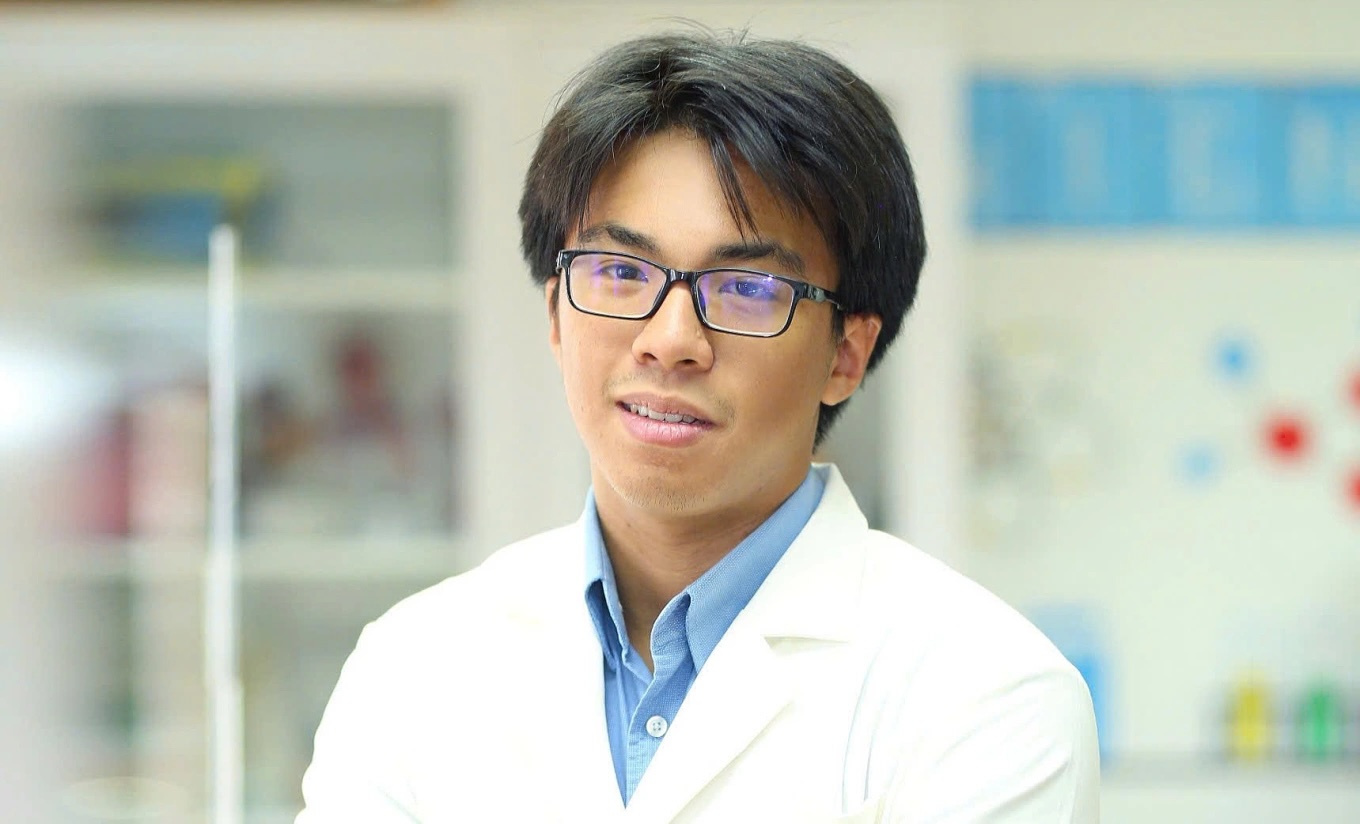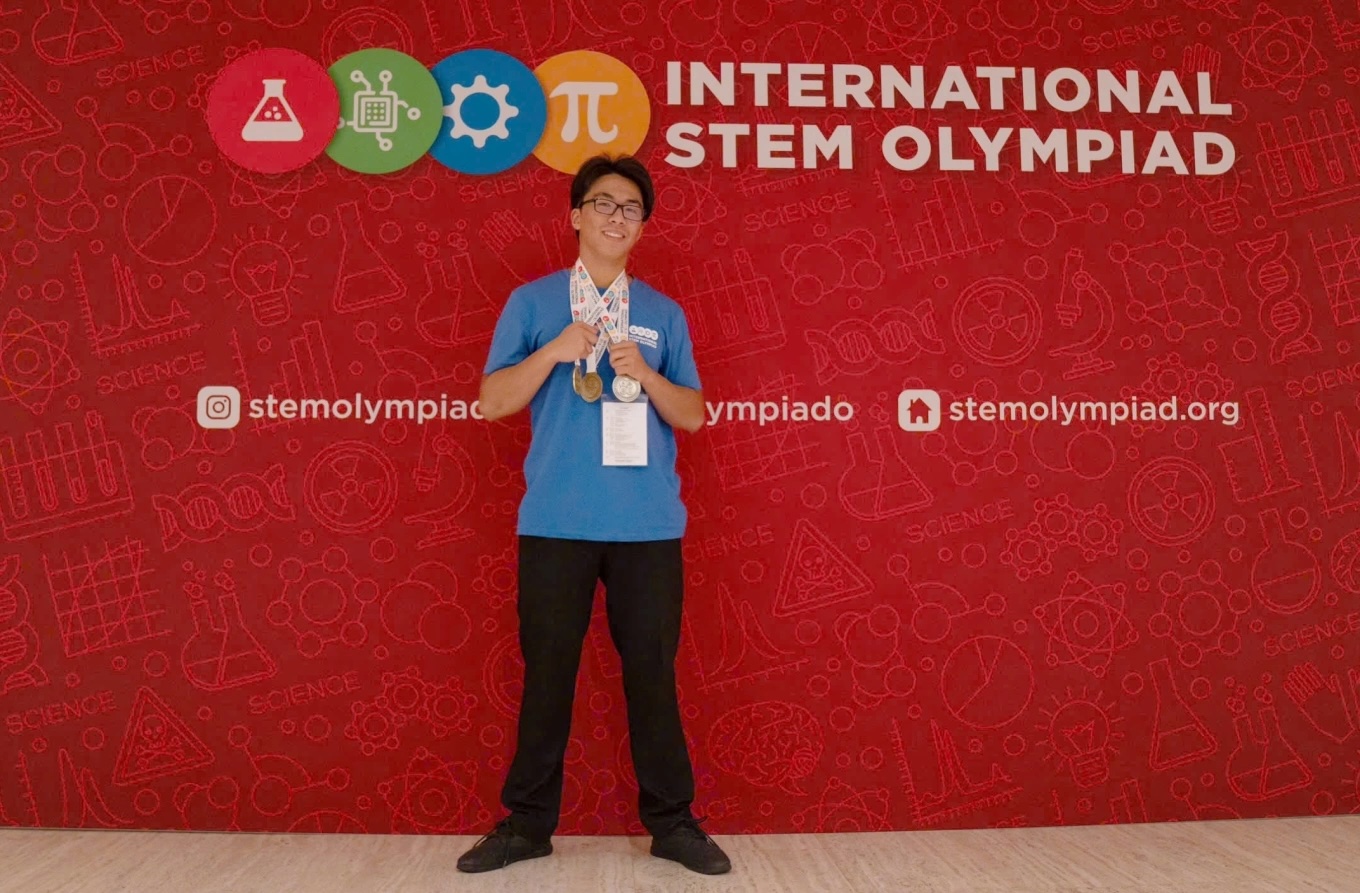Vietnamese Student Earns Johns Hopkins Admission with Groundbreaking Cancer Research
At just 18 years old, Xuân Khôi earned admission to Johns Hopkins University, ranked sixth in the U.S., with an SAT score of 1580/1600, seven A* grades in IGCSE subjects, and groundbreaking research utilizing biomedical markers for early cancer cell detection.
Mai Xuân Khôi, a student at the Vietnam Australia International School (VAS) in Ho Chi Minh City, received his acceptance letter from Johns Hopkins University last weekend. Ranked sixth in the U.S. by US News, the university is a leader in biomedical sciences, with an acceptance rate of just 7-8%.
Initially, Khôi faced disappointment after being rejected by Cornell University during the early admission round in December 2024. He never expected to gain admission to Johns Hopkins in this cycle. Even upon seeing the word "Congratulations," he was in disbelief.

Mai Xuân Khôi
"I couldn’t believe it until I read the entire email," Khôi recalled.
Having a family member affected by cancer, Khôi aspired to contribute to medical research and drug development. Aware of Johns Hopkins' strengths in biomedicine, including pharmaceutical courses, he chose to pursue a major in Chemical Engineering with a biomedical focus.
Thanks to early career orientation, Khôi had ample time to engage in scientific research. His most significant study focused on using biomedical markers for early cancer cell detection.
He explained that terbium phosphate (TbPO4), containing the rare earth element Tb3+, is luminescent and easily absorbed by tumors. This property allows cancer cells to "glow" under a scanner, enabling doctors to detect and mark them.
Khôi's research contributed to synthesizing TbPO4 using a hydrothermal method, optimizing and accelerating the detection process.
Under the guidance of Dr. Lê Thị Vinh from the Faculty of Basic Sciences at Hanoi University of Mining and Geology, Khôi's research earned a gold medal at an international science and engineering competition in the U.S., competing against thousands of students.
Dr. Vinh praised Khôi for his meticulousness, perseverance, and research potential. With strong language skills, he independently sourced materials and expanded his knowledge. Despite being new to research, Khôi constantly sought innovative applications for existing findings.
"I highly appreciate this quality in Khôi," Dr. Vinh stated.
Beyond this, Khôi also participated in projects such as developing a test kit for measuring calcium levels in water, which benefits aquaculture, and wastewater treatment research in a Hanoi craft village. These endeavors earned him various accolades, including third place in a city-level science competition and a silver medal at the International Research Competition for Young Scientists (IRCYS).
"I find research more suitable for me than social activities requiring engagement and fundraising," Khôi admitted. "That's why I focused on this strength to make my application stand out."
For his personal essay, Khôi initially planned to highlight his achievements but opted for a more personal story to help the admissions committee understand him better. He chose to write about his grandfather and his journey in learning Muay Thai.
Khôi's grandfather was a special forces soldier. Growing up with his stories, Khôi admired him and aspired to achieve remarkable feats. This led him to take up Muay Thai, but conflicts with peers resulted in parental intervention, ultimately causing him to quit.
"That incident made me reflect. I realized that heroism isn’t about surpassing others but about taking responsibility, supporting the community, and protecting one’s family. That’s what truly lasts," Khôi shared. "I apologized to my teacher and friends, and I returned to Muay Thai."

Khôi’s academic record is equally impressive
Khôi’s academic record is equally impressive. He achieved seven A* grades in IGCSE subjects, scored 1580/1600 on the SAT, and earned an IELTS score of 8.5. Last year, he won gold in Mathematics and silver in Science at the International STEM Olympiad.
To excel academically, Khôi relied on flashcards for studying and actively discussed lessons with teachers. Instead of cramming before exams, he maintained a consistent study routine throughout the year, balancing academics, research, sports, and a regular 10:30 PM bedtime.
Trần Phương Hoa, Director of Summit Education Organization and Khôi’s application advisor, was impressed by his diligence and punctuality.
Although strong in scientific research, Khôi initially struggled with expressing emotions and writing essays. His personal statement underwent over ten revisions in two months. However, his persistence resulted in a well-crafted and engaging essay, according to Ms. Hoa.
"With his academic excellence, patience, and precision, I believe Khôi has the potential to become a great engineer or researcher," she said.
Khôi will begin his studies in the U.S. this August. He plans to spend his first year familiarizing himself with the curriculum and taking supplementary courses. Once acclimated, he plans to delve deeper into cancer treatment research.
(According to VnExpress)
